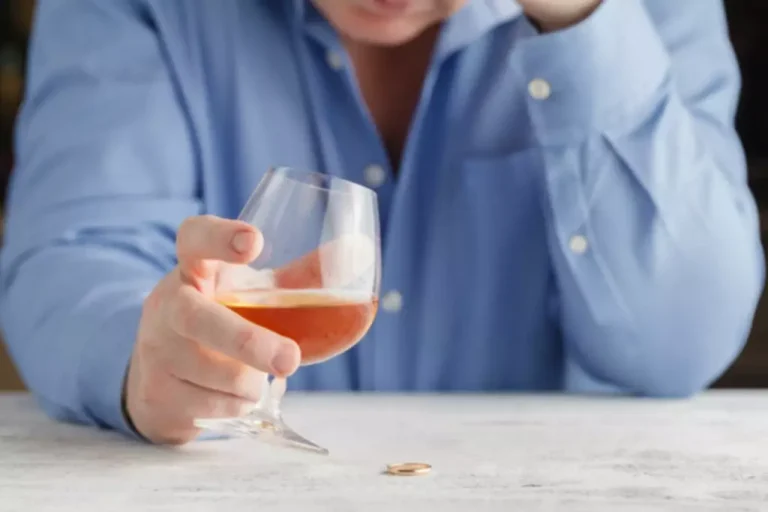What To Do After a Relapse: Comprehensive Guide for Recovery

It’s essential to understand the factors that contribute to relapse so that individuals in recovery can be better prepared to address and prevent them. By emphasizing self-compassion and engagement with treatment, individuals can navigate these challenges more effectively, recognizing that relapse does not erase their progress. Instead, it serves as an opportunity for growth and reassessment of strategies, allowing a deeper understanding of personal triggers and emotional management in maintaining long-term sobriety. Experiencing a relapse does not define your journey toward recovery; it’s a temporary setback in the broader context of growth and resilience. By understanding the complexities of addiction during positive times and taking proactive steps after a relapse, individuals can foster a renewed commitment to sobriety.

Understanding Medicaid Coverage for Drug Rehabilitation Services

Once you’ve taken steps toward recovery, it’s important to address the relationships that may have been damaged during relapse. Explain what occurred and what you are doing to get back on track. It’s important to also explain how your relapse what to do after a relapse doesn’t mean you’ve failed, and you will be taking further action to prevent relapse from happening again.
How to Prevent Relapse
- There are various avenues for accessing professional help and support if you’re concerned about a loved one relapsing.
- When confronted with a relapse, it is essential to take an understanding and determined stance.
- Remember, setbacks are part of the process, so practice self-compassion.
Speak with a recovery specialist about continuing your journey today. A relapse occurs when you find yourself no longer following your treatment program. Discover the essential steps to sober living, from acceptance to building a support network. Help your loved one to create a relapse prevention plan, a personalised strategy to help individuals maintain their progress and reduce the risk of relapse. The key here is to understand that a relapse is not a permanent Sober living home occurrence but rather a shortcoming. If done right, this could be an opportunity to learn and help reinforce your commitment to moving forward.

Welcome STR Alumni of Addiction Treatment

An addiction relapse prevention plan is a crucial component in managing substance use disorders, whether related to drug or alcohol use. This plan serves as a structured approach to prevent relapse, focusing on maintaining sobriety and supporting individuals through their recovery journey. Addiction medicine plays a crucial role in understanding the stages of relapse and integrating various therapeutic modalities to enhance treatment outcomes for substance use disorders. In summary, well-crafted relapse prevention plans are vital for anyone navigating the complexities of substance abuse and addiction recovery.
- Experiencing a setback can be disheartening, yet it’s essential to consult with healthcare specialists to modify your treatment plan.
- Having a strong support network is vital to addiction recovery.
Developing Healthier Habits
Recovery is a personal journey of growth, resilience, and continuous learning. Every step—even those that feel like setbacks—brings you closer to your long-term goals of health and wellness. Research shows that those with strong social networks can increase their likelihood of sustained recovery by up to 50%. Turning to your friends, family, or local support groups for help can help you provide the non-judgmental emotional support that you need to remain committed. Relapsing after a period of abstinence may understandably feel like a major setback — but experts stress it’s a completely normal and even inevitable step on the path to long-term healing.

Establishing healthy boundaries within family relationships prevents enabling behaviors, which can hinder recovery efforts. Statistics highlight that relapse is a significant challenge for individuals recovering from substance use disorders. Research indicates that between 40% to 60% of people may experience a relapse within the first year after treatment. Moreover, 70% to 90% may face at least one mild to moderate relapse during their recovery journey.
Achieving Long-term Sobriety: The Path Forward
- Facing a relapse without self-judgment is the first step toward regaining control.
- As the rewiring process unfolds, you’ll likely notice a stronger drive to pursue things you care about.
- Using drugs once during recovery doesn’t necessarily mean that a person has relapsed.
- Overall, relapse prevention is a proactive and empowering approach to maintaining sobriety and promoting long-term recovery.
Connecting with an addiction worker could help you stay strong in your recovery. In either case, take time and energy to prepare yourself for these difficult feelings when they arise. Part of being easy on yourself is making space in which you can feel these emotions. Encourage yourself to reach out to people who can help you process these emotions. It’s important to remember that emotions don’t occur for no reason. Recognizing that these emotions are opportunities for growth is an important approach.
